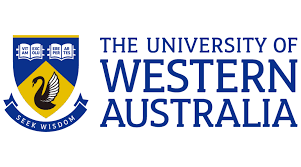University of Western Australia: Three UWA projects receive $1.8 million in national research funding
A project from The University of Western Australia focused on understanding how defunct satellites degrade to produce space debris, another aimed at capturing Australia’s history with the Dutch East India Company and a third investigating factors affecting groundwater in semiarid inland regions have been awarded a combined $1.8 million from the Australian Research Council (ARC).
Funds were awarded under the ARC linkage projects scheme, which promotes national and international research partnerships between researchers and business, industry, community organisations and other publicly funded research agencies.
Associate Professor David Coward, from UWA’s School of Physics, Maths and Computing, will lead a team working with the Polish Space Agency to investigate the degradation of different classes of satellites to try to understand how these are adding to an increasing quantity of space debris, to assist in assessing the risks of collisions in space.
With $303,000 ARC support and taking advantage of UWA’s Zadko Telescope and Western Australia’s unique geographic location, the project will seek to classify some of the estimated 35 million objects measuring more than 0.1cm currently in orbit, to aid national security and the commercial space sector.
Professor Alistair Paterson, from UWA’s School of Social Sciences, and a team of researchers from eight universities and 12 collecting agencies, have been awarded $798,000 to explore Australia’s rich legacy of archives, art and artefacts – including four shipwrecks in WA – from the country’s history of encounters with the Dutch East India Company.
In the early 1600s the Dutch East India Company, or Vereenigde Oostindische Compagnie, was the first company listed on the Amsterdam stock exchange and, with worldwide reach, became a forerunner of modern-day multinational corporations. The project will benefit Australia by situating its collections in a global context, creating new stories about encounters with ‘the Southland’ and its people.
Dr Grzegorz Skrzypek from UWA’s School of Biological Sciences, was awarded $770,000 to lead a project researching knowledge gaps in predicting soil and groundwater responses to periodic flooding in semiarid inland regions in Australia, focussed on the Pilbara.
Dr Skrzypek said that groundwater reliance in semi-arid regions is rapidly increasing, exacerbated by climate change leading to high uncertainty in available water resources. Groundwater resources are influenced by changing cyclone patterns that also constitute a flooding risk for infrastructure and mining.
The project will focus on infiltration in the unsaturated zone and groundwater recharge in response to cyclones, with outcomes to be shared with government policy makers and used to improve groundwater management.

